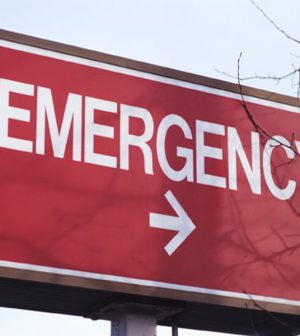- Could Your Grocery Store Meat Be Causing Recurring UTIs?
- Are You Making This Expensive Thermostat Error This Winter?
- Recognizing the Signs of Hypothyroidism
- 10 Strategies to Overcome Insomnia
- Could Artificial Sweeteners Be Aging the Brain Faster?
- Techniques for Soothing Your Nervous System
- Does the Water in Your House Smell Funny? Here’s Why
- Can a Daily Dose of Apple Cider Vinegar Actually Aid Weight Loss?
- 6 Health Beverages That Can Actually Spike Your Blood Sugar
- Treatment Options for Social Anxiety Disorder
The ER or Urgent Care?

Urgent care centers are popping up across the country as an option for medical treatment. But it’s important to know the differences between these facilities and your local hospital emergency department.
The ER is for life-threatening situations, yet many people go there when urgent care is more appropriate. According to one study, nearly half of ER patients whose ailment didn’t warrant being admitted to the hospital had gone to the ER simply because their doctor’s office wasn’t open.
Urgent care would have been more appropriate — and less expensive. Out-of-pocket costs are likely lower than for an ER visit, especially if the facility is in your health insurance network.
Realize, too, that the emergency department treats people in order of need, so you may have a longer wait time. Urgent care centers usually see people on a first-come, first-served basis.
Here are some examples of reasons to seek urgent care:
- Fever and flu symptoms.
- Minor injury.
- Painful urination.
- Severe sore throat.
More serious problems, like severe pain and difficulty breathing, as well as traumatic injuries, do need screening and treatment at the ER.
In serious emergencies, driving to the ER won’t get you help fast enough. It’s safer to call 911, especially in life-threatening situations. Paramedics can start care immediately.
Here are some reasons to go to the ER:
- Any sign of stroke, including paralysis, difficulty speaking, altered mental status or confusion.
- High fever or fever with a rash.
- Persistent chest pain, shortness of breath or wheezing.
- Serious burn.
- Serious fall or an injury involving the head or eyes, a broken bone, deep cut or dislocated joint.
- Severe bleeding or pain.
- Sudden, severe headache or loss of vision.
If you’re unsure what constitutes an emergency or what costs will be covered, contact your insurer before you need any of these services. If you’re ever in doubt, go to your closest ER. But if the problem is simply that you just can’t reach your doctor, consider urgent care.
More information
Scripps Health has more tips on how to choose between the ER or urgent care.
Source: HealthDay
Copyright © 2026 HealthDay. All rights reserved.










